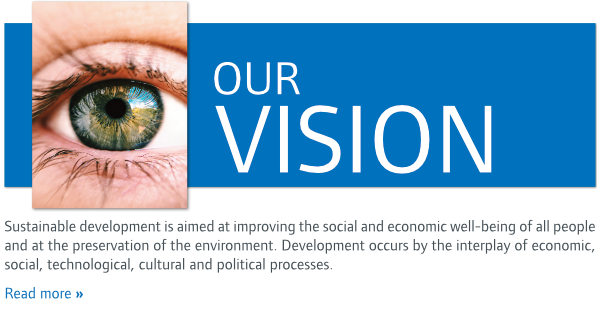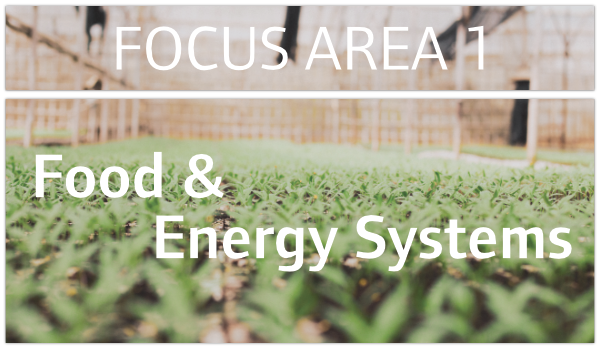ZEU Portrait
Center for international Development and Environmental Research (ZEU) of Justus-Liebig-University of Giessen (JLU)
- Focus Areas
-
Focus Areas
According to the ZEU's regulation the center's research activities are based on subject-specific/methodical priorities. These represent the research interests of the ZEU members and are defined by the latter. Each member may be involved in several focus areas.
It's the Center’s Council that can establish and terminate a focus area. The area’s speaker and his/her deputy are elected from among its members. The speakers serve as contact for the ZEU bodies and are responsible for organization and coordination of activities within the respective focus areas.
- Focus Area 1: Food and Energy Systems
-
Speaker: Prof. Martin Petrick, Vice Speaker: Dr. Marie Reusch
Today, billions of people worldwide suffer from malnutrition, causing various negative health impacts. Across the globe, more than a billion people depend on the agricultural sector for their livelihoods. Land and biomass also figure prominently in the transition to environmentally more sustainable energy sources. For example, the transition from fossil to renewable energies represents a key strategy to reduce global warming. Food and energy systems thus play a central role in any transition to a more sustainable economy. Technological, economic and social change materialises within these systems. At the same time, the many dimensions and interrelations of food and energy systems create complex analytical and policy challenges. The ZEU Focus Area 1 addresses these challenges.
In our approach, food and energy systems include all the elements and activities that relate to the production, processing, distribution, and consumption of food and energy, and the results of these activities, including socio-economic and environmental outcomes. Natural resources, people, inputs, processes, technologies, infrastructures, institutions constitute the core elements.
-
Researchers within the ZEU Focus Area 1 pursue a systems approach while analysing synergies and trade-offs in the transformation towards more sustainable food and energy systems. We investigate resource use and environmental impacts, as well as the role of actors and governance systems, in a holistic way. Hence, we expand the prevailing focus of attention from food and energy producers to include other actors such as food companies, retailers, energy suppliers and, ultimately, consumers. Such a broader approach improves our understanding of current food and energy systems and highlights pathways towards a more sustainable future by going beyond a restricted sectoral view.
- Focus Area 2: Climate and Environmental Change
-
Speaker: Dr. Elena Xoplaki, Vice Speaker: Dr. Irina Solovieva
Global environmental change encompasses changes in the Earth System, spanning from the large to the regional and local scales, driven by human activities as well as associated biological and physical processes.
Understanding the mechanisms and patterns of change as well as the systems’ interactions and feedback advances future risk assessments. Equally important is to increase our knowledge of the impacts of climate and environmental change on societies, ecosystems, food and energy systems (ZEU Focus Area 1), health, and human security. Our research aims at enhancing preparedness, supporting well-informed adaptation and mitigation strategies to safeguard and sustain human wellbeing through technologies that enable climate neutrality.
Within ZEU Focus Area 2, we support the impact assessment community and contribute to informed policy making. We study past, present, and future climate and environmental changes and their impacts at continental, regional, and local scales. We focus on understanding the role of natural and anthropogenic climate change, land use and management changes, biodiversity loss, as well as overexploitation and pollution.
-
The types of data we use span from proxy records and remotely sensed indicators to models, scenarios, and field surveys. We address natural and forced climate variability, extreme events, and associated impacts applying a wide range of methods, from experimental fieldwork and process-based modelling to artificial intelligence and machine learning. Considering the severity of climate and environmental change and partly unpredictable future impacts on human wellbeing, the transformation towards sustainable development strategies based on Sustainable Development Goals is globally accepted as the most important target of our society. In this context, well-functioning environmental governance mechanisms at all levels are a cornerstone for successful management of constantly changing socio-ecological systems. We examine institutions, processes, norms, formal and informal mechanisms that regulate action for sustainability and global common goods - climate and environment.
- Regulations








